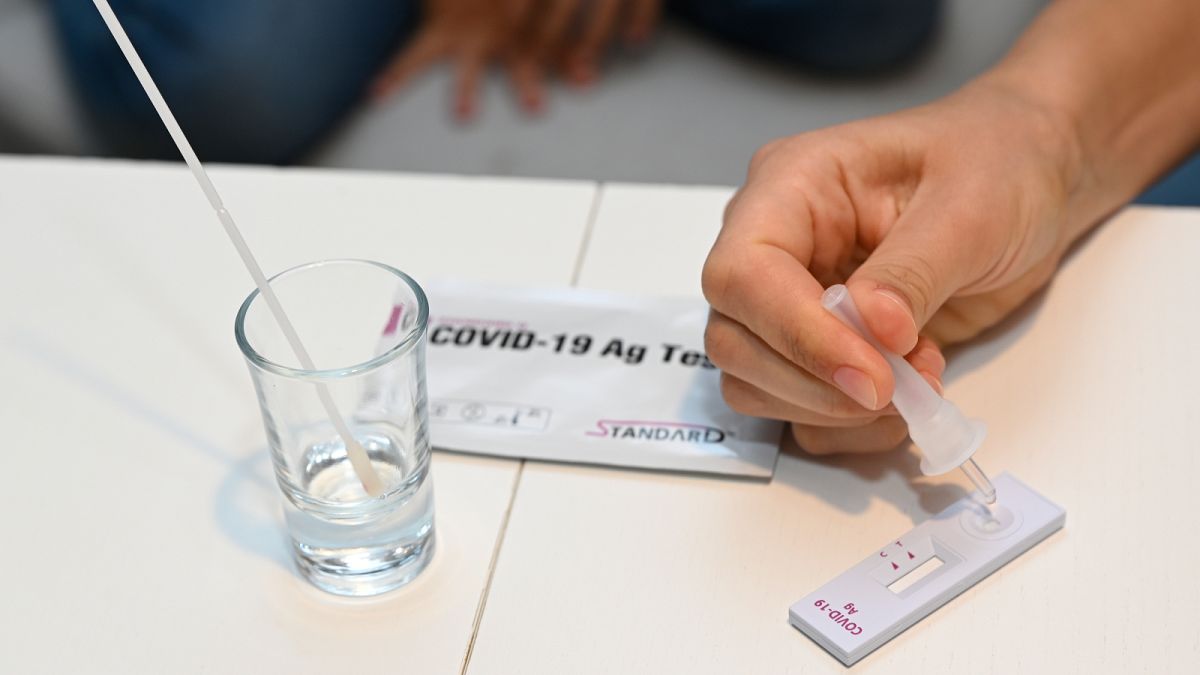In France, the leader in rapid diagnostic tests, Biosynex, has hired 200 temporary staff to meet soaring demand, amid record case numbers and end-of-year holidays.
The first COVID-19 self-test kits have arrived on the shelves of supermarkets in France, as the country registered a record 208,000 new cases on Wednesday, more than double the numbers recorded on Christmas Day.
In a bid to tackle the surge of the highly contagious Omicron variant, French supermarkets are now offering rapid coronavirus antigen tests, which provide one more tool to combat COVID-19.
About a hundred sets were sold within a few hours. "It's less time-consuming than queueing up for PCR tests. I don't know if it's reliable or not, but maybe at least it gives us an idea," said David, a French customer.
France's leader in rapid diagnostic tests, Biosynex, has also hired 200 temporary staff to meet the soaring demand for self-tests, driven by the record number of cases and the end-of-year holidays.
"Demand is much higher today than at the beginning of the year," explained Gaël Levy, Biosynex's industrial director.
Across the Channel, a shortage of lateral flow tests in English pharmacies is causing widespread anxiety, with frustrated locals flocking to get PCR tests to ensure they are virus-free for New Year's celebrations, but also for work.
"We went to pick some up and there's none in the pharmacies around my way, there's none, they've all got the sign up saying they've run out, so," revealed a Basildon resident.
Meanwhile, in Italy, the high demand for self-tests combined with supply chain issues has resulted in a bottleneck as Italians experience hours-long waits to get tested.
In Rome, some people had to wait up for eight hours, according to Euronews correspondent Giorgia Orlandi.
"In Milan, some centres where these tests are carried out have reached the maximum limit of reservations and therefore many people won't be able to get tested. In some places, even the army has been used to facilitate operations concerning the rapid tests," she added.
Watch the full report in the video player, above.
